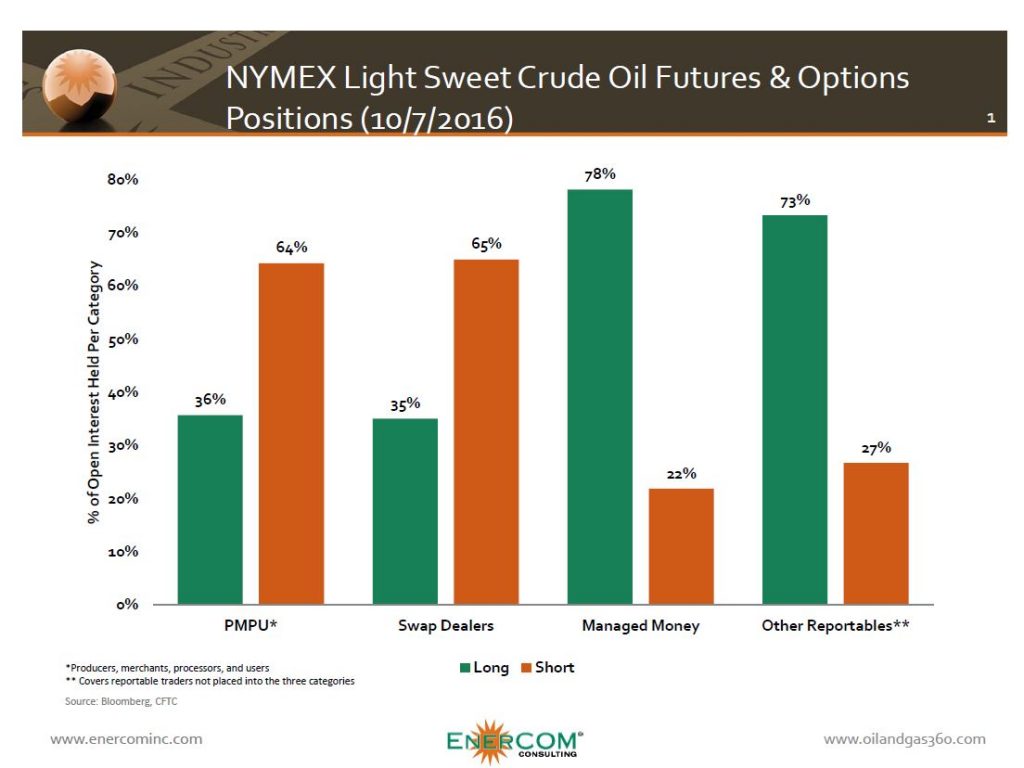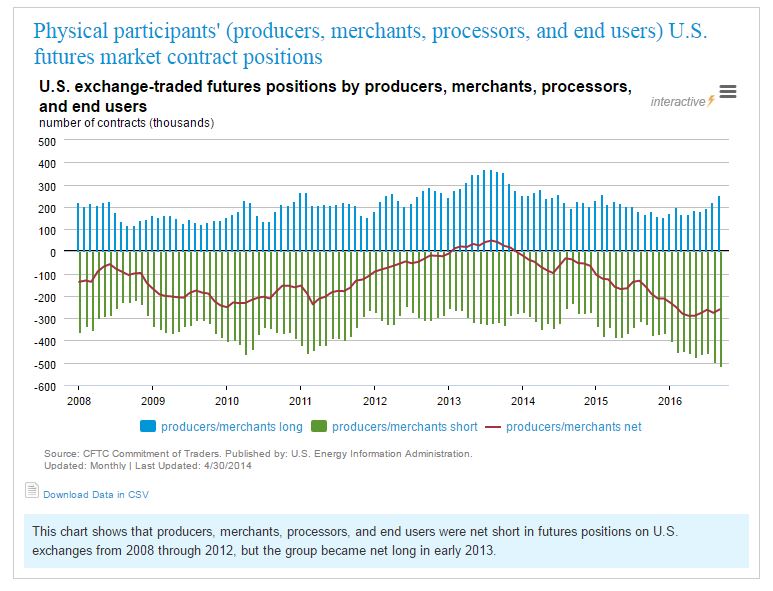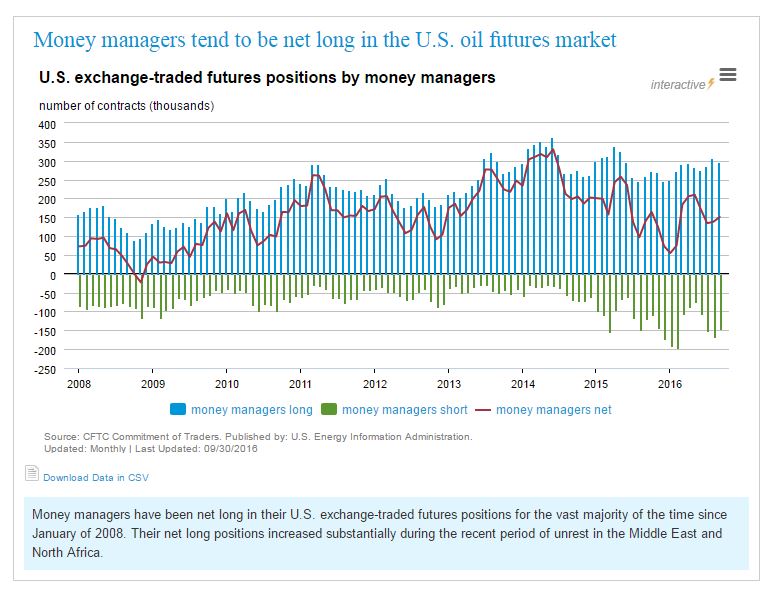A presidential commission tracks the crude oil positions that are reported each week: this week producers and processors are short, while managed money is long oil
In its Weekly Commitment of Traders Report released every Friday, the United States Commodity Futures Trading Commission (CFTC) breaks down the number of outstanding short and long NYMEX futures and options contracts for light, sweet crude oil on the basis of four categories: PMPU, Swap Dealers, Managed Money, Other.
As of 10/7/2016, producers, merchants, processors, and users (PMPU) as well as swap dealers are net short, while managed money and what the commission calls ‘other reportables’ are net long.
CFTC’s definitions
A “producer/merchant/processor/user” (PMPU) is an entity that predominantly engages in the production, processing, packing or handling of a physical commodity and uses the futures markets to manage or hedge risks associated with those activities.
A “swap dealer” is an entity that deals primarily in swaps for a commodity and uses the futures markets to manage or hedge the risk associated with those swaps transactions. The swap dealer’s counterparties may be speculative traders, like hedge funds, or traditional commercial clients that are managing risk arising from their dealings in the physical commodity.
A “money manager,” for the purpose of the CFTC’s report, is a registered commodity trading advisor (CTA), a registered commodity pool operator (CPO), or an unregistered fund identified by CFTC.7. These traders are engaged in managing and conducting organized futures trading on behalf of clients.
Every other reportable trader that is not placed into one of the other three categories is placed into the “other reportables” category.
What does it mean?
The EIA offers background on who buys various contracts in the commodities trading markets.
“Oil producers and airlines have a significant commercial exposure to changes in the price of oil and petroleum-based fuels, and may seek to hedge their risk by buying and selling energy derivatives,” the EIA says in a note discussing the effects of trading and financial markets on crude oil prices. “For example, an airline may want to buy futures or options in order to avoid the possibility that its future fuel costs will rise above a certain level, while an oil producer may want to sell futures in order to lock in a price for its future output.”
“Banks, hedge funds, commodity trading advisors, and other money managers—who often do not have interests in trading physical oil—are also active in the market for energy derivatives to try to profit from changes in prices. In recent years, investors have also shown interest in adding energy and other commodities as alternatives to equity and bond investments to diversify their portfolios or to hedge inflation risks.
“Open interest on exchange-traded crude oil futures contracts increased substantially over the past decade, as measured by the New York Mercantile Exchange (NYMEX), the main commodities exchange for energy products in the United States. Both commercial participants (those that have a direct interest in physical oil production, consumption, or trade) and non-commercial investors (money managers and funds that are interested in trading contracts for investment and diversification purposes) have shown increased trading activity,” the agency reports.




